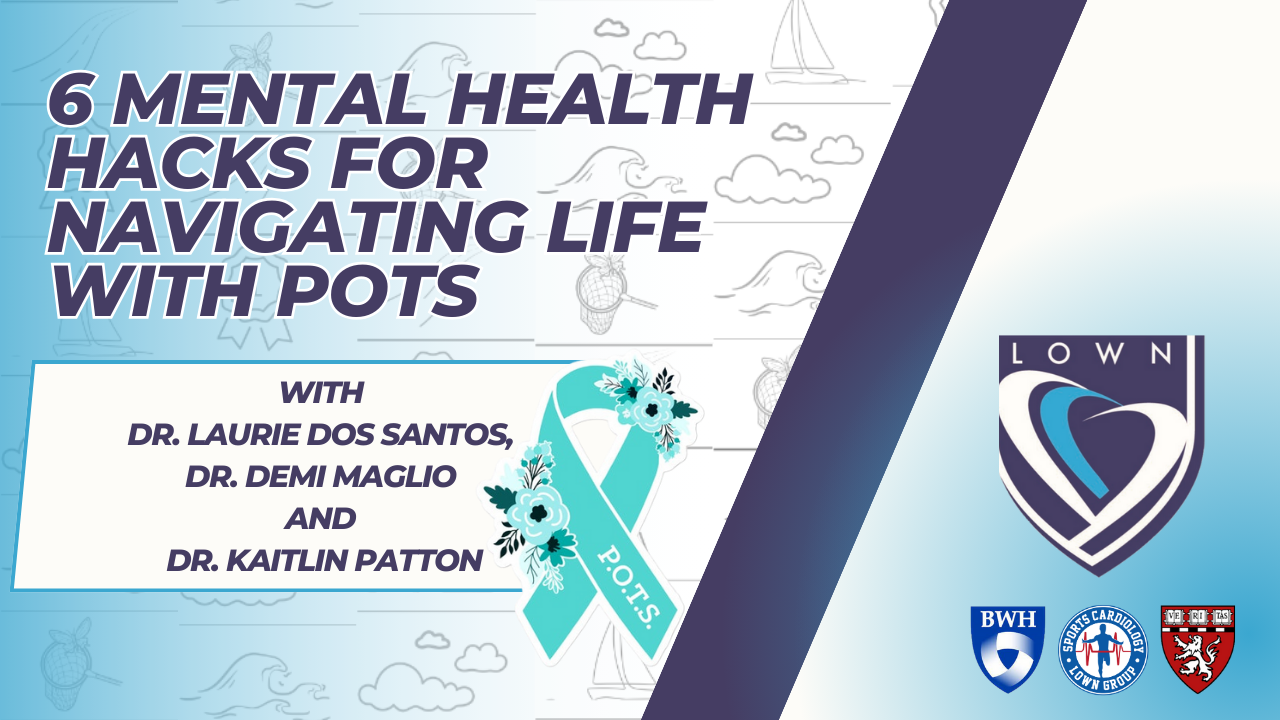Talk Therapy Is Good For Your Heart Health, Study Finds
Published: 5/4/2023
Use the link here to view the original article: Talk Therapy Is Good for Your Heart Health, Study Finds
Fast Facts:
- New study found that managing depression using talk therapy can reduce an individual’s risk of heart disease.[1]
- Past research has shown that people with depression have a 72% greater chance of developing cardiovascular disease in their lifetime.
- Experts point to exercise as another means of managing depression and heart health, in addition to therapy resources.
Managing depression could play a huge role in reducing the risk of cardiovascular disease, a new study found.1
Past research has shown that people with depression are up to 72% more at risk to develop cardiovascular disease in their lifetime. Depression also puts people at higher risk for other chronic diseases, such as diabetes.[2]
The new research, which was conducted by a team in the United Kingdom, people with depression who responded positively to a type of psychotherapy called talk therapy (including cognitive behavioral therapy), had reduced risk of heart disease and stroke.[1]
“That would suggest that the benefits of therapy may go beyond mental health and also benefit physical health,” Céline El Baou, research assistant, PhD candidate at University College London, and study leader told Health.
The study’s findings emphasize the importance of making therapy more accessible to everyone, she added.
Mental Health and Heart Disease
To measure the effect relief from depression had on peoples’ heart health, El Baou and her team used health records from nearly 637,000 adults who had completed one course of talk therapy between 2012 and 2019. The researchers followed up after 3 years to determine each patient’s risk of cardiovascular disease, coronary heart disease, stroke, and death from any cause.
The study authors did not measure other ways people may be reducing depression other than talk therapy, but they did adjust for some of the other risk factors that increase the risk of cardiovascular disease, including diabetes. The team found that people whose depression reliably improved were 12% less likely to have cardiovascular disease at any point in the future.[1]
The effect appeared to be stronger in people under age 60 compared to those 60 and over. Those under age 60 saw a 15% risk reduction in incidents of cardiovascular disease and a 22% decrease in risk of dying from any cause during the study time. That’s compared to a 6% and 15% decrease for people over age 60.
According to Ahmed Tawakol, MD, a cardiologist at Massachusetts General Hospital and associate professor of medicine at Harvard Medical School, depression may have an outsized impact on heart disease in younger people.
Because older people have multiple risk factors for heart disease, many different issues would need to be addressed to have a big impact on the overall risk for a cardiovascular event such as coronary artery disease or stroke
But younger people typically have fewer risk factors for heart disease. For some, depression may be the only one, meaning if they target that, they would have a bigger benefit than someone with multiple risk factors.
“It could be that people who are younger are deriving a bigger net risk from depression,” explained Dr. Tawakol, who was not involved in the new study.
The new findings add to a growing body of research showing that depression can have a particularly big effect on heart health in younger adults. A separate study published earlier this year included nearly 600,000 U.S. adults ages 18 to 49. About 20% had depression, and the researchers found that the more depressive days a person reported in a month, the more likely they were to develop cardiovascular disease.[3]
Compared to those who didn’t have any poor mental health days, people who had up to 13 poor mental health days in a month had almost 1.5 times greater risk for cardiovascular disease. Those with more than 13 days were more than twice as likely to develop cardiovascular disease.
How Depression Affects the Heart
The study authors had little information on lifestyle factors such as whether or not a person smoked, what they ate, and how often they exercised.
But while depression can make it harder for people to stick to certain lifestyle habits that promote heart health, such as not smoking, exercising, and eating a healthy diet, habits aren’t the only factor at play.
“Lifestyle choices are definitely linked with both heart and mental health, but they do not explain in themselves why certain people experience depression, heart problems, or both,” El Baou told Health, adding that if lifestyle factors are an issue, getting these on track could be a focus of therapy.
But there are also known biological connections between depression and heart disease.
“Independent of lifestyle aspects, depression also has physiological consequences that lead to diabetes, adiposity, and hypertension,” Dr. Tawakol added. “It’s a dual pathway.”
He continued, adding, “When we used to think of it as simply only the result of lifestyle changes, we would mistakenly assume that if the patient could only improve their lifestyle, their cardiovascular risk would be improved.”
Depression actually changes the parts of the brain associated with stress and releases chemicals that ramp up inflammation, one of the main drivers of disease, including heart disease.[4]
Relieving depression, whether it be through therapy or other means, can quell this inflammation. And while not exercising enough because a person is depressed may not have as big of an effect on the link between mental health and heart disease as experts once thought, exercise is one proven way people can reduce depression—especially when therapy is not accessible.
In a study presented last year at the American College of Cardiology’s Annual Scientific Session, Dr. Tawakol and a team of researchers set out to determine how exercise, depression and anxiety, and cardiovascular disease were linked.[5]
After analyzing health records from more than 50,000 adults, they found that exercise had an outsized effect in improving cardiovascular health in people who have anxiety and depression compared to those who do not.
While the heart benefits people got from exercise plateaued after a certain amount of weekly exercise in people who did not have depression and anxiety, the benefit kept steadily increasing in people who did.
And according to Dr. Tawakol, it’s not just endorphins. “There is a change in the function of the brain,” he noted.
Exercise changes the wiring of the brain, creating more dendrites, or ‘branches,’ that facilitate complex communication. Since the brains of people who have depression are impacted by the condition, this stimulation may have an outsized effect that settles the sense of stress and depression in the brain. Exercise also curbs inflammation.
There are many ways to treat depression, therapy is just one. But what the new research highlights is the important link between mental and physical health.
Dr. Tawakol concluded, “This reminds us that you’re never too young to benefit substantially from treatment of depression.”
Sources:
[1] El Baou C, Desai R, Cooper C, et al. Psychological therapies for depression and cardiovascular risk: evidence from national healthcare records in England. Eur Heart J. Published online April 18, 2023. doi:10.1093/eurheartj/ehad188
[2] Herrera PA, Campos-Romero S, Szabo W, Martínez P, Guajardo V, Rojas G. Understanding the relationship between depression and chronic diseases such as diabetes and hypertension: a grounded theory study. Int J Environ Res Public Health. 2021;18(22):12130. doi:10.3390/ijerph182212130
[3] Kwapong YA, Boakye E, Khan SS, et al. Association of depression and poor mental health with cardiovascular disease and suboptimal cardiovascular health among young adults in the United States. J Am Heart Assoc. 2023;12(3):e028332. doi:10.1161/JAHA.122.028332
[4] Shao M, Lin X, Jiang D, et al. Depression and cardiovascular disease: shared molecular mechanisms and clinical implications. Psychiatry Res. 2020;285:112802. doi:10.1016/j.psychres.2020.112802
[5] Zureigat H, Abohashem S, Grewal S, et al. Cardiovascular benefit of exercise is greater in those with anxiety and depression. J Am Coll Cardiol. 2022;79(9 Suppl A):1436. doi:10.1016/S0735-1097(22)02427-5
Recent Blog Posts






